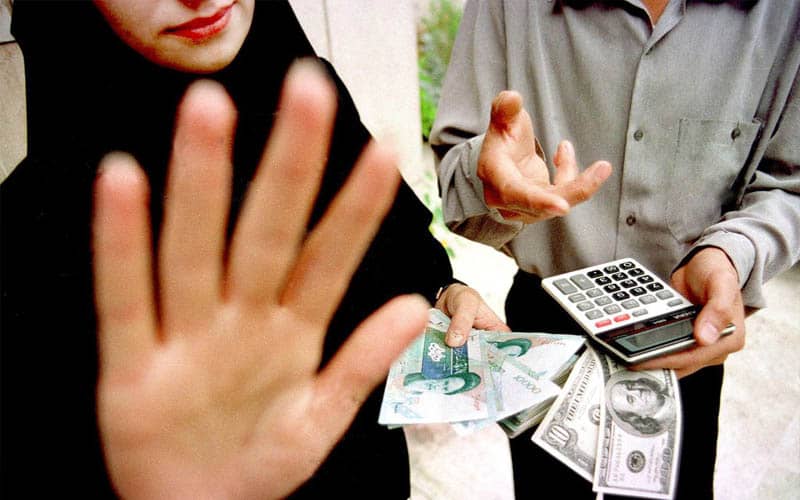
By Pooya Stone
Institutionalized systematic corruption in the Iranian government has increased the economic pressure on people to an unthinkable amount and officials fear that economic grievances could lead to protests like those seen in November 2019.
On Wednesday, the Iranian Parliament showed how the ever-present threat of protests caused by hatred of the ayatollahs has increased infighting among Iranian politicians, which even caused them to admit that the government’s mismanagement and corruption created the economic crisis in Iran that they have long tried to blame on sanctions.
Torbat-e Jam MP Jalil Rahimi Jahanabadi said: “We could clearly see that the country’s problem is having shadow decision-makers. Ministries are not controlled by ministers but rather by mafias in their entourage. Within the last 100 days that we assumed office (as lawmakers), the price of rice has increased four times, the price of cars has increased threefold. The national currency values have decreased by 300 per cent. Meanwhile, the villagers’ insurance renewal fee has jumped from 600,000 rials to 7,000,000 rials, what have you done?”
The Seday-e Eslahat newspaper wrote the following the day that the currency value is declining and that those in power should be made to explain what they have done to damage the country’s economy.
Through this, we can clearly see that the Iranian people’s unprecedented poverty is down to the absolute power of mafia gangs who control the sale of everything from food to fuel and thus demand an extraordinary markup, which is then used to fund the government’s domestic oppression and warmongering.
Case-in-point, the testing of new ballistic missiles during a global pandemic or the acknowledgement by former MP Heshmatollah Falahatpisheh that the government has spent $20-30 billion propping up Syrian dictator Bashar Assad.
The National Council of Resistance of Iran (NCRI) had published seven articles recently about the government’s systematic corruption, where they determine that the Revolutionary Guards (IRGC) is holding “Iran’s economic channels hostage” and even on the occasions that corrupt officials were replaced – as was the case for the judiciary’s Akbar Tabari-Pour – it does not end the corruption. Rather like the hydra, cutting off one head causes two more to grow.
The NCRI wrote: “The regime’s institutionalized corruption and plundering of the national wealth for funding terrorism have triggered two major Iran protests in 2018 and 2019 which rattled the regime’s foundations. The possibility of another uprising starting because of the economic and social pressure on people has terrified the entire regime.”


